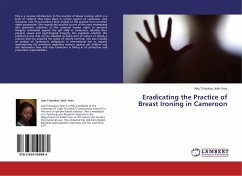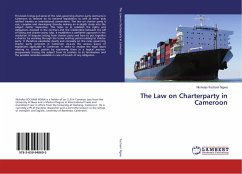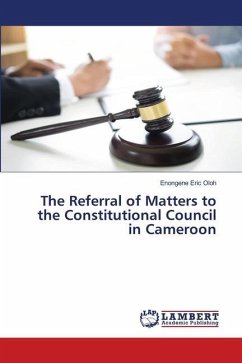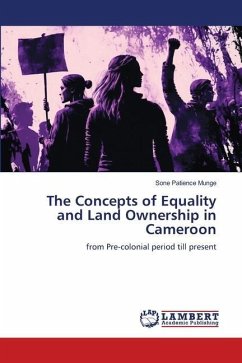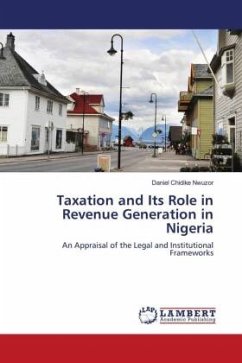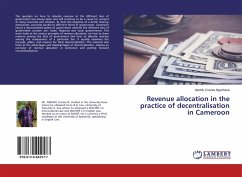
Revenue allocation in the practice of decentralisation in Cameroon
Versandkostenfrei!
Versandfertig in 6-10 Tagen
27,99 €
inkl. MwSt.

PAYBACK Punkte
14 °P sammeln!
The question on how to allocate revenue to the different tiers of government has always been and will continue to be a cause for consent to many countries and scholars. To meet the objective of a better sharing mechanism, countries ascribe to different forms of government. Cameroon favors a decentralized system of government wherein the different tiers of government concern are: State, Regional and Local governments. This work looks at the various principles of revenue allocation, on how to share revenue among the tiers of government and how to allocate revenue among the components of a partic...
The question on how to allocate revenue to the different tiers of government has always been and will continue to be a cause for consent to many countries and scholars. To meet the objective of a better sharing mechanism, countries ascribe to different forms of government. Cameroon favors a decentralized system of government wherein the different tiers of government concern are: State, Regional and Local governments. This work looks at the various principles of revenue allocation, on how to share revenue among the tiers of government and how to allocate revenue among the components of a particular tier. It equally examines the concept, pillars, and reasons for fiscal decentralization. The research also looks at the advantages and disadvantages of decentralization, making an overview of revenue allocation in Cameroon and putting forward recommendations.





